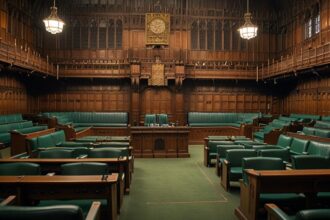Humza Yousaf, First Minister of Scotland, is in a precarious position as he faces a no-confidence vote following the dissolution of the coalition between the SNP and the Scottish Greens, testing his leadership and potential to steer the country through its current political turmoil.
Scottish First Minister Humza Yousaf is facing a significant political crisis as he contends with a no-confidence vote in Holyrood. This situation arose after the Scottish National Party (SNP) ended its coalition with the Scottish Greens, leaving Yousaf vulnerable. The breaking of the coalition has prompted varied responses from political parties, with the Scottish Labour, Conservatives, Greens, and the Liberal Democrats expressing dissatisfaction with Yousaf’s leadership. The outcome of the no-confidence vote is critical, as Yousaf requires a majority in the Scottish Parliament to retain his position. Notably, MSP Ash Regan of the Alba Party could play a pivotal role in this vote, with her support being contingent on Yousaf’s responses to her concerns about Scottish independence and women’s rights.
Meanwhile, within the UK Labour Party, a separate issue has emerged as the party proposes to renationalize the railways, stirring discussions on the feasibility and implications of such a move. This issue continues to evoke significant debate among stakeholders and the public.
Simultaneously, Diane Abbott, a prominent figure in British politics and the first black female MP, has been highlighted for her enduring commitment to civil rights and social justice despite facing significant opposition and discrimination throughout her career.
As the political landscape in Scotland remains fluid, with leaders and parties recalibrating their strategies, the upcoming elections are expected to bring further changes and possibly redefine leadership roles within Scottish politics.













